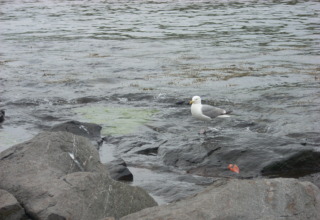
“Since working on the Sage Leadership Project, I have gotten a number of additional insights about community leadership and community engagement. I believe this project was more responsible for me being thoughtful about leadership and what it takes by struggling with my own answers to the interview questions. I became reflective about my own style of leadership and was able to identify good and bad examples of leadership. So, the Sage Leadership Project was a powerful learning experience for me.”
It was interesting and informative to learn just how many ways that people give back to our community. This expanded my view of what could be done. People who teach music, who help with educating the young, taught me that civic engagement is a huge community resource. The Sage project was a very inspiring experience for me. I drew energy from the interviews, and, like many of us, also resulted in making new friends. One of the lessons learned is that everyone has a story. And as well as I thought I knew a person, I really didn’t until I engaged him in the kinds of questions that were asked in the interviews. The asking of questions links back to my earlier comments about parenting, about me being an advisor/ counselor. Often that means honoring my mistakes and learning from them. Learning to ask open questions that cause a person to discover their own answers is a real skill. I truly believe that the questions we decided to ask enabled this to happen, and that was an important learning for me.
When we are stagnant the world in which we live tends to close up around us. When we are generative, the world in which we live keeps inviting us to learn new things. Coaching sessions can be one element in this welcoming world.
“Big Picture”
The “big picture” is discovered by those engaged in Generativity Four—and a professional coach can serve as an Expansion Coach on behalf of this fourth mode of generativity. When one embarks upon a journey of civic engagement at any point in life, there appears to be a rich opportunity for new learning. As Dan has observed, it is only the matter of opening up to this opportunity:
“To put a wrap on this as to what I have learned since retiring over 15 years ago, I have an appreciation for learning new things and experiencing and taking new risks with the unknown. I don’t mean in just an intellectual way. I learned from my experiences in Habitat for Humanity how a house is constructed by just going out and working on it. This hands-on experience really got me away from my leadership role as a university president, and especially about ego. I just went out, got a hammer, and learned how to do it. It was ok to not know anything, to just be a novice. And you know, in a year, I could roof my own house, build a foundation, space rebar, etc. Then I got interested in woodworking….
What I have come to learn at this stage of my life is to honor what I don’t know and have confidence that I can learn new things. I really got to appreciate the principles of Total Quality Management when I was re-building my Ford Model A. I decided that I would take down every single part and put them back together again from scratch. I really had no idea how to do this, but I got a series of essays. What I learned was always to think through what I was about to do, and never to rush. Be patient. Do it right the first time because if I do it wrong, I’m going to do it all over again. Some of that “do over’ thing is a life-long lesson……..All of my projects that have required me to use my hands have really tested my brain….and my patience.”
Dan has outlined quite a curriculum for himself. As a former educator, he has now built his own personal university with a broad selection of life courses–and the tuition is paid not with money but with a willingness to take a risk. Generativity becomes both quiet and brave.















